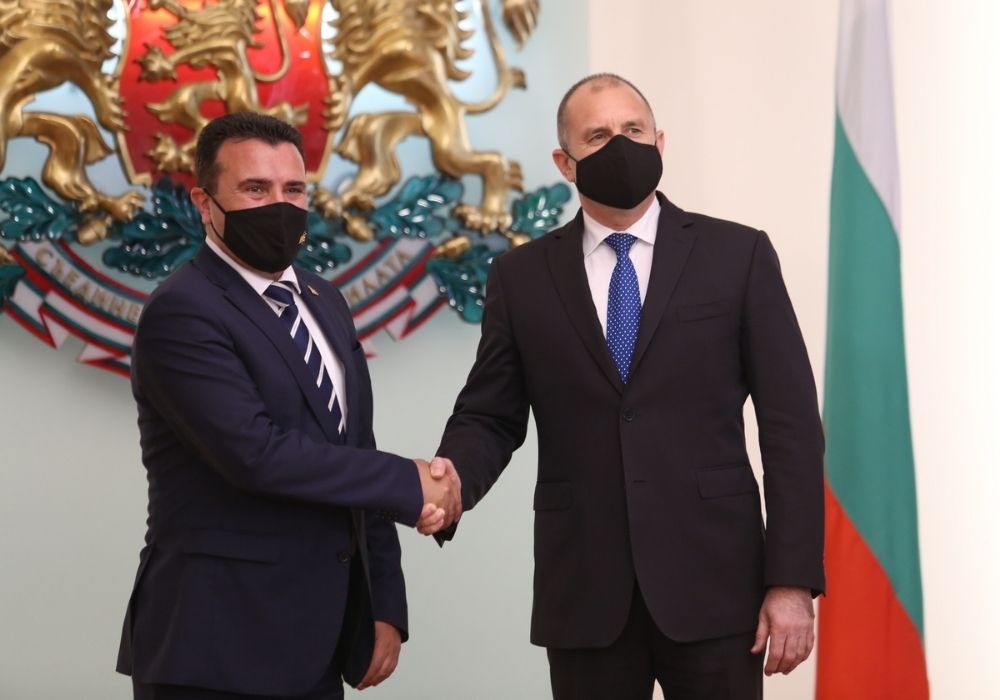The visit by the Prime Minister of North Macedonia Zoran Zaev to Sofia on 17 June started out in a minor key and with the idea of playing it safe on both sides. One day before the arrival of the delegation from the Republic of North Macedonia the Bulgarian Foreign Ministry stated that at the upcoming European Council on 24 and 25 June, Bulgaria would not approve the launch of EU accession negotiations with North Macedonia. The reason – North Macedonia’s persistent failure to comply with the 2017 Friendship and Good Neighbour Agreement. Once again Zoran Zaev referred to the current political situation by way of explanation:
“I have the feeling that on 22 June there won’t be any decision because Bulgaria has a caretaker government and doesn’t have a parliament.” He also set down Skopje’s red lines – that “there will be no negotiations on the Macedonian language and identity”. Sofia assures North Macedonia that it has recognized both, but specifying that this is valid for the period after their declaration by decrees in 1944.
“Bulgaria’s policy has remained unchanged for many years. We firmly support North Macedonia, Albania and the Western Balkans on their road to EU accession. But we must first clear up the problems between us so we don’t encumber the EU with them,” stated caretaker Prime Minister Stefan Yanev after his meeting with Zaev.
“The controversy between Skopje and Sofia is bilateral and it has to be settled at a bilateral level,” Zoran Zaev agreed after lobbying against Bulgaria in a number of European countries for months. The visit to Sofia will encourage the joint historical commission in its work, a commission set up under the Friendship and Good Neighbour Agreement, he promised, again.
“Historians deal in science. But they should not be conduits in politics because politics is the responsibility of governments,” the Bulgarian prime minister explained for MIA news agency. “Do we have to wait another five years for this commission to achieve anything? I do not believe that is realistic,” Stefan Yanev said.
“To some degree, the Friendship and Good Neighbour Agreement we signed in 2017 did not include any concrete binding terms and conditions. This has allowed for fluctuating interpretations,” President Rumen Radev emphasized during his meeting with PM Zaev.

The Bulgarian head of state pointed out that in the past two years bilateral relations have reached a dead end which has affected Skopje’s negotiations with the EU. The Bulgarian President expressed the hope that after two years of delay the Macedonian side will finally accredit an ambassador to Sofia.
Neither Zoran Zaev nor his hosts made any public announcement regarding the steps under discussion for overcoming the controversy.
According to different sources Zoran Zaev promised that North Macedonia would alter its constitution to include Bulgarians as part of the ethnic groups living in the country. Skopje stated its readiness to open up the archives of the former Yugoslav special services so as to make public information about atrocities committed against Macedonian Bulgarians after 1944. Another proposal is the adoption of a special declaration on the languages of the two countries which are closely related but different and internationally recognized.
Photos: BGNES
Bulgaria’s National Assembly rejected President Rumen Radev’s veto on the amendments that expand the powers of the special commercial administrator of Lukoil, reported BNR’s correspondent Maria Fileva. The MPs from the ruling majority, supported by..
President Rumen Radev has vetoed the legislative amendments related to the appointment of a special commercial administrator in the Lukoil refinery in Burgas. The head of state said that the amendments undermine the legal order in..
Convulsions Before Multipolarity — a Time When Illusions Are Sacred and Truth Is Heresy is the title of a new book that will be officially presented in early November in Sofia. It explores the agony of a unipolar world, an era of geopolitical..

+359 2 9336 661
